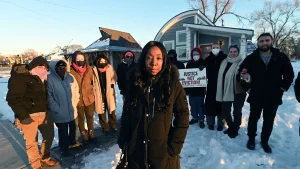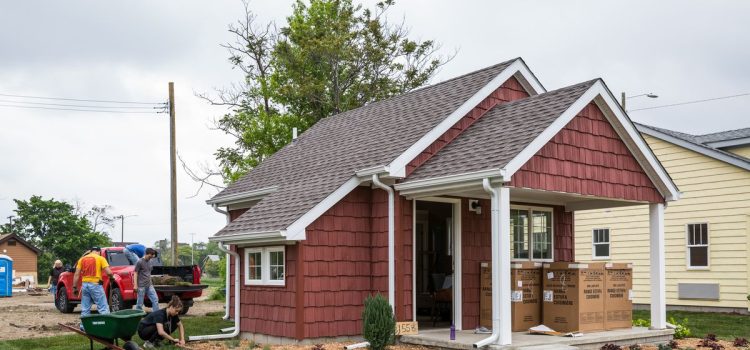
Introduction
In the dynamic city of Detroit, renowned for its resilience and innovation, a compelling debate is unfolding. This article delves deep into the myriad of controversies surrounding Detroit’s flourishing tiny house movement, unraveling the intricacies of the challenges and possibilities it offers. To illuminate our path through this exploration, we’ll hear from local experts who provide their invaluable perspectives.
Meet the Local Experts
Before we delve into the controversy, let’s introduce the local experts who play a pivotal role in understanding Detroit’s tiny house revolution:
1. Dr. Lisa Mitchell Credentials: Urban Planner and Housing Advocate Dr. Mitchell’s extensive background in urban planning and her commitment to affordable housing issues make her a central figure in evaluating the impact of tiny homes in Detroit.
2. Robert Green Credentials: Tiny House Builder and Advocate Robert’s hands-on involvement in constructing and advocating for tiny houses in Detroit offers a pragmatic, ground-level view of this burgeoning movement.
The Tiny House Revolution
Unveiling Detroit’s Tiny House Movement
Detroit, a city with a rich history and a bright future, finds itself at the forefront of an extraordinary housing revolution. Tiny houses, often measuring under 500 square feet, have emerged as a solution to Detroit’s housing challenges, providing affordability and sustainability.
The Controversies

1. Zoning Quandaries: A Legal Conundrum
A significant point of contention within Detroit’s tiny house movement revolves around zoning regulations. The tension between innovative housing concepts and traditional zoning laws has ignited passionate debates concerning land use and property rights.
2. Neighborhood Dynamics: Balancing Identity
Tiny houses often disrupt the established character of neighborhoods, raising concerns about the preservation of local identity. Striking a balance between innovation and community cohesion is a formidable challenge.
3. Utility Conundrums: Adaptation Challenges
Adapting utilities and infrastructure originally designed for larger homes to accommodate tiny houses presents technical challenges. Discovering sustainable solutions tailored to these compact dwellings remains an ongoing puzzle.
The Benefits
1. Affordable Housing: A Path to Ownership
Tiny houses offer an accessible entry point into homeownership, empowering individuals and families to invest in property without the weight of traditional mortgages.
2. Sustainable Living: A Greener Tomorrow
Compact dwellings significantly reduce the environmental footprint of urban living, championing sustainability and eco-friendliness.
3. Minimalism in Practice: Simplified Lives
Embracing minimalism through tiny house living fosters decluttered, simplified lives, liberating residents from the trappings of consumerism.
Local Initiatives and Success Stories
1. Micro-Communities: Redefining Urban Living
Detroit’s tiny house communities are pioneers in reshaping urban living, creating micro-neighborhoods that nurture a sense of community and shared values.
2. Robert’s Vision: Building Dreams
Robert Green’s dedication to building and advocating for tiny houses has not only provided affordable housing but also inspired others to join the movement, leaving a lasting impact on Detroit’s housing landscape.
Comparative Table: The Tiny House Debate vs. Benefits
| Aspect | Controversy | Benefits |
|---|---|---|
| Zoning Regulations | Legal battles and debates | Affordable homeownership |
| Neighborhood Dynamics | Clash with local identity | Sustainability and eco-friendliness |
| Utility Challenges | Adapting to compact living | Simplified, clutter-free living |
Conclusion
Detroit’s tiny house controversy is a testament to the city’s adaptability and its readiness to embrace innovative housing solutions. While the debates are passionate and ongoing, the advantages of affordability, sustainability, and minimalism are too significant to ignore.
Ultimately, Detroit’s tiny house movement invites us to reimagine the concept of home and community in the 21st century. Whether you’re a skeptic or an enthusiast, the discussion surrounding small living in the Motor City is a conversation worth engaging in. It’s not just about tiny houses; it’s about reshaping the idea of urban living itself.










